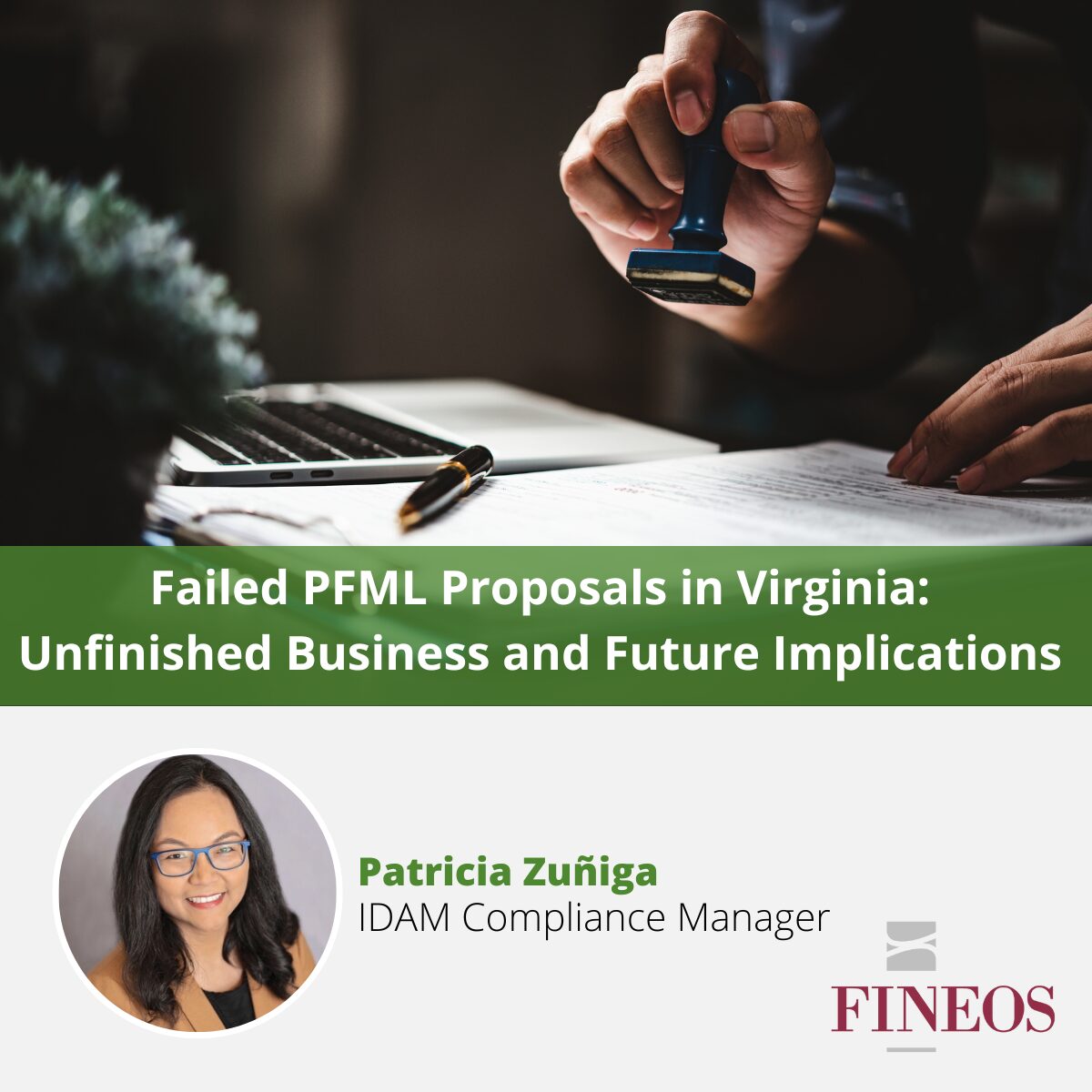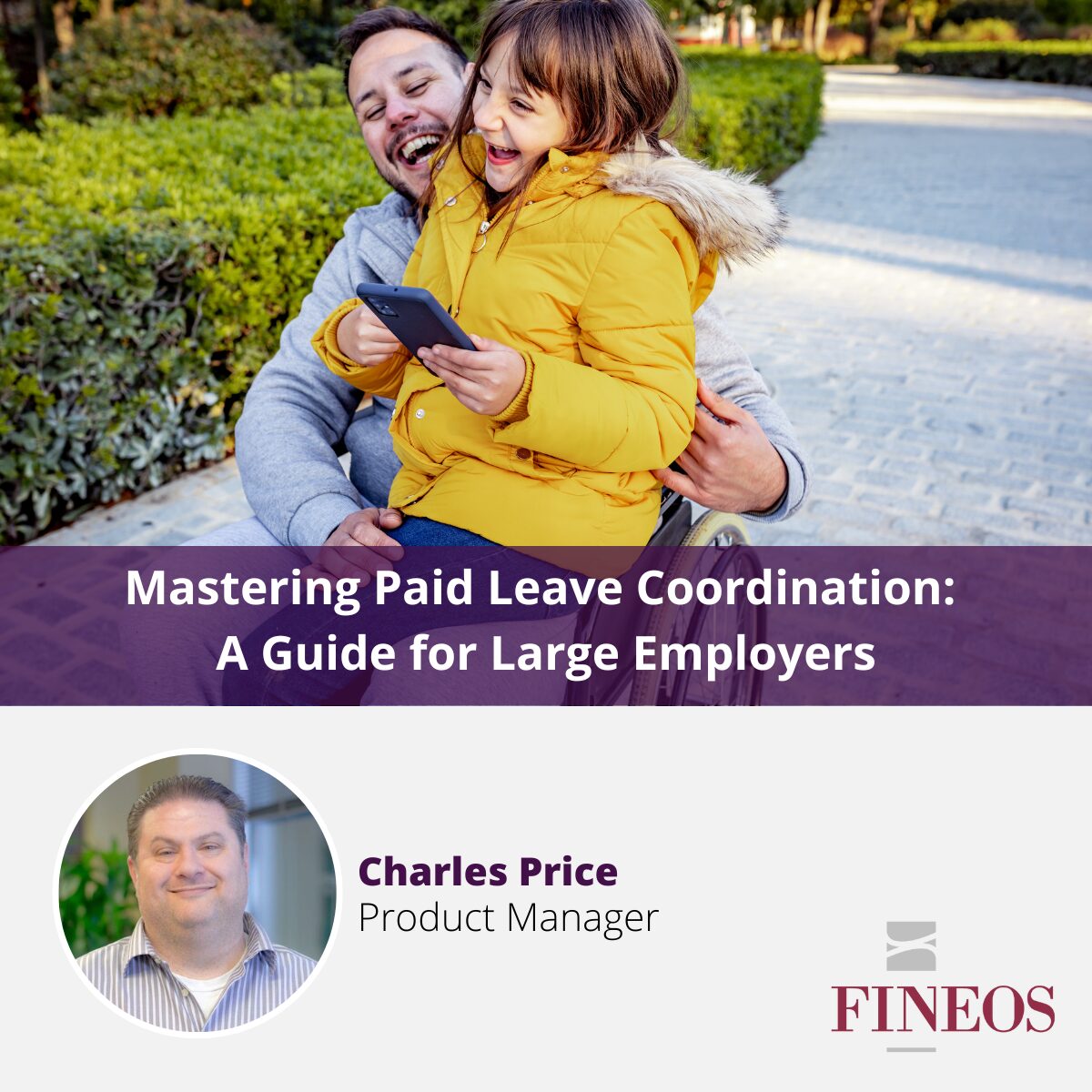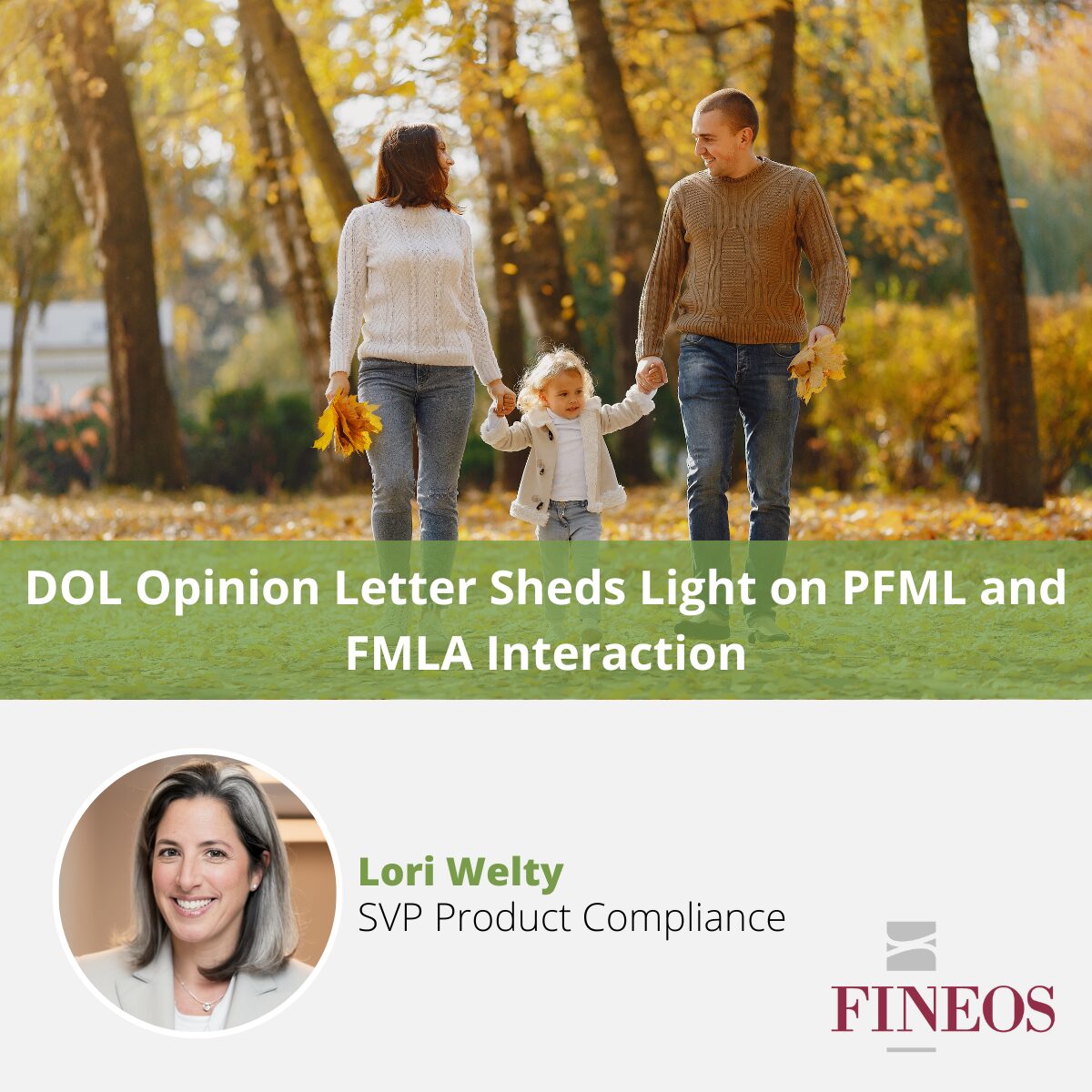On May 10, the governor of Delaware signed Senate Substitute 2 for Senate Bill 1, the Healthy Delaware Families Act, which creates a statewide paid family and medical leave insurance program (DE PFML). Contributions to the program will begin on January 1, 2025, and employees may begin receiving benefits on January 1, 2026. This new law also allows for private plans. Read on for more details about this new statutory PFML program:
Covered Leave Reasons: DE PFML allows employees to take leave for:
- Parental leave: bonding with a child during the first year after the birth, adoption, or placement of the child
- Family Caregiving leave: caring for a family member with a serious health condition and leave for a qualifying military exigency
- Medical leave: an employee’s own serious health condition
Amount of Leave: An employee can take 12 weeks of leave in an Application Year (i.e., the 12-month period as defined in the FMLA) in combination for all the allowable leave reasons, subject to two limitations:
- An employee can take up to 12 weeks per Application Year for Parental leave; and
- An employee can take up to 6 weeks in any 24-month period for Medical leave and Family Caregiving leave combined.
The new law provides that, except in the case of Parental leave, and leave on a reduced schedule and intermittent schedule, an employee is eligible for benefits only once per 24-month period. No doubt the regulatory process will reveal more details of the meaning of this provision.
Additionally, if two parents work for the same employer, they both can be limited to an aggregate of 12 weeks during any 12-month period for all reasons other than leave for their own serious health condition.
Calculation: The weekly benefit amount is 80% of the employee’s average weekly wage during the 12 months preceding submission of the application. For reduced or intermittent paid leave, employees receive a prorated amount. The minimum weekly benefit amount is $100, and the maximum weekly benefit in 2026 and 2027 is $900, increasing annually based on the Consumer Price Index.
Private Plans: An employer can satisfy the requirements of the DE PFML law through a private plan approved by the DE Department of Labor (DE DOL). The private plan must provide benefits equal to those required under the law for one or more of the reasons set forth in the law, i.e. Family Caregiving leave, Medical leave, or Parental leave.
Private plans can be self-insured or insured. If an employer provides coverage for a private plan that does not cover all reasons for leave, the employer can provide the remaining coverage using the state plan.
Eligible Employee: Employees who work at least 1,250 hours over the 12-month period preceding leave are eligible for DE PFML. To be covered by the new law, an employee must report for work primarily at a worksite within Delaware. Employers can opt to classify employees that primarily report for work at a worksite outside of Delaware as a covered employee. An employee does not include employees defined as a casual seasonal employee.
Covered Employers: Employers with 10 to 24 employees primarily reporting for work at a worksite in Delaware during the previous 12 months are only subject to the Parental leave provisions. Employers with 25 or more employees during the previous 12 months are subject to all Parental, Family Caregiving, and Medical leave provisions. The following employers are not covered:
- Employers with less than 10 employees in the state of Delaware in the previous 12 months;
- The federal government; or
- Any business that is closed in its entirety for 30 consecutive days or more per year.
Small businesses (i.e., nine or less employees for purposes of Parental leave and 24 or less employees for purposes of Family Caregiving and Medical leave) may choose to opt in to the program. If they choose to do so, they must remain opted-in for a period of at least three years. To opt out, they must provide 12 months’ notice to their employees and the DOL so long as the effective date is after the initial three-year period.
Covered Family Members: DE PFML defines an employee’s covered family member as a parent, child, or spouse, as those terms are defined under the FMLA.
Contributions: Beginning January 1, 2025, for each employee, an employer must contribute to the Family and Medical Leave Insurance Account Fund on a quarterly basis, or more frequently as regulated by the DE DOL. Contribution rates are as follows:
- Medical leave benefits:
- .4% of wages for 2025 and 2026
- Family Caregiving benefits:
- .08% of wages for 2025 and 2026
- Parental leave benefits:
- .32% of wages for 2025 and 2026
An employer can deduct up to 50% of the required contributions from the employee’s wages.
Calendar Method: DE PFML allows the four calendar methods permitted under the FMLA, i.e. calendar year, fixed year, rolling forward, or rolling backwards.
Type of Leave: Employees may take reduced or intermittent leave. An employee must provide notice, to the extent practicable of the schedule for the leave. Benefits are not payable for less than one day of leave taken in one work week.
Concurrency: Leave under DE PFML runs concurrently with leave under the federal FMLA. An employer can require the use of unused accrued paid time off (PTO) before accessing family and medical leave benefits. If the employee is not required to exhaust all their PTO, the use of accrued PTO can count toward the total length of leave under DE PFML. An employee cannot receive DE PFML benefits if the result would be that the employee received more than 100% of their weekly wages. An employer can require that DE PFML payments run concurrently or are otherwise coordinated with payment made or leave allowed under the terms of disability or family care leave under a collective bargaining agreement or employer policy. The employer must give employees written notice of this requirement.
Employee Notice: An employee must provide notice of their intention to take covered leave to their employer 30 days in advance, if known, or as soon as practicable. In addition, an employee must provide, in a timely manner, a certification to their employer or an approved private plan that supports their need for PFML benefits. It appears that the employer is responsible for assessing certification, and approving or denying the leave, whether the employer has opted into a private plan or not.
Employer Notice: Employers must provide written notice to each employee of the rights and duties of an employee under DE PFML at the time of hire, when the employee requests covered leave, or when the employer acquires knowledge that an employee’s leave may be for a qualifying event.
Whether the employer has opted into a private plan or not, the employer must approve or deny an application for PFML benefits within five business days of receipt of a completed application with all necessary documentation. If the claim is denied, the employer must notify the employee of the reason for denial; if the claim is approved, the employer must notify the DOL within three business days.
Job Protection: An employee is entitled to be restored to their previous position, or to a position with equivalent seniority, status, employment benefits, pay, and other terms and conditions of employment, including fringe benefits and service credits, which the employee was entitled to at the commencement of the covered leave.
Maintenance of Health Insurance Benefits: Employers must continue any employment health benefits for the time that the employee is absent from work or receiving benefits under DE PFML. The employee must continue to pay their share of the cost of health care benefits while on leave.
How is FINEOS helping carriers and employers prepare for paid leave programs?
FINEOS will be ready to administer this new leave law by its effective date. Using modern insurance technology solutions like the FINEOS Platform can help insurance carriers remain agile and competitive when leave legislation is passed. Learn more about how a modern, integrated disability and absence management (IDAM) solution can help your organization adapt to sudden changes and remain in compliance here.


